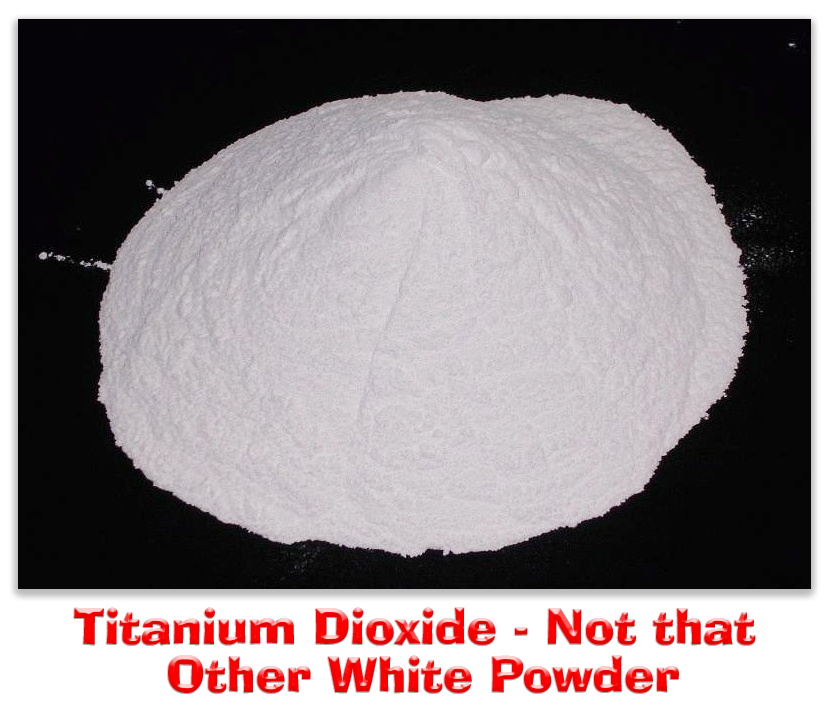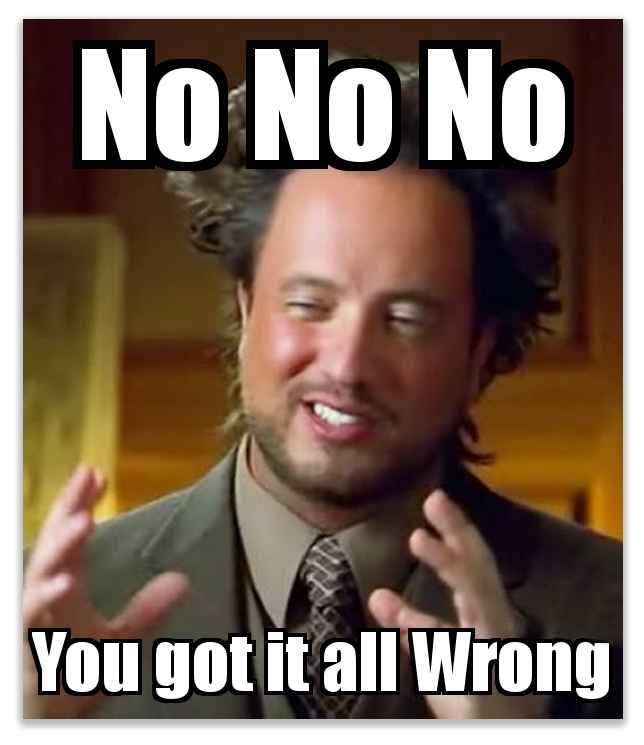We post news and comment on federal criminal justice issues, focused primarily on trial and post-conviction matters, legislative initiatives, and sentencing issues.
 WHITEWASH
WHITEWASH
 It’s hard to resist an appellate decision the begins with a teaser that promises “if you wanted to learn about the secretive and lucrative world of titanium dioxide production, then this was the trial for you.”
It’s hard to resist an appellate decision the begins with a teaser that promises “if you wanted to learn about the secretive and lucrative world of titanium dioxide production, then this was the trial for you.”
Walter Liew is one of those Chinese expats who has never lost his affection for the motherland. In fact, the Chinese government – fairly renowned for stealing every secret, economic or otherwise, that the USA hasn’t nailed down – has honored Walt “for being a patriotic overseas Chinese who has… provided key technologies” to China.
Walt set out to steal a DuPont process for making titanium dioxide (TiO2) – useful for turning everything from paint to Oreo cookie filling white – using a secret process that was much more efficient than anything anyone else owned. Walt’s company vacuumed up DuPont documents and hired ex-DuPont employees in the process, and started building a factory in China to use the stolen process. Someone sent DuPont an anonymous letter, and DuPont investigated, ending up in a lawsuit against Walt and his economic pirates.
 When Walt was sued, he of course answered the lawsuit, declaring that his group had never “wrongfully obtained or possessed any” DuPont trade secrets related to its TiO2 chloride process or “misappropriated any information from DuPont or any of its locations.” He also told one of his key employees not to reveal the names of other employees not named in the lawsuit, adding that it would not be “good for anybody, not even good for your family” if the employee revealed their names.
When Walt was sued, he of course answered the lawsuit, declaring that his group had never “wrongfully obtained or possessed any” DuPont trade secrets related to its TiO2 chloride process or “misappropriated any information from DuPont or any of its locations.” He also told one of his key employees not to reveal the names of other employees not named in the lawsuit, adding that it would not be “good for anybody, not even good for your family” if the employee revealed their names.
At some point, DuPont sic’ced the FBI on Walt, resulting in a federal indictment against Walt, his wife, his associates and his company.
A lot of the case is narrowly focused on the Economic Espionage Act of 1996, which is not terribly relevant to federal criminal law in general. But a few counts in the indictment allege that Walt obstructed justice by lying in the answer to the civil suit, and tampered with witnesses.
 A long time ago, a number of federal circuits – bothered by how easy it was to violate 18 USC 1001, which makes it a felony to utter a false statement to federal agents – ginned up a doctrine known as the ‘exculpatory “no”.’ The idea was that if the friendly FBI agent asked you whether you had sold drugs to little Johnny, and you said, “Of course not, he sold them to me, and in fact grew the pot in the field over yonder,” you were in trouble. But if you merely answered the agent’s question by saying, “No, I did not,” you did not violate 1001. Blurting ‘no’ to a law enforcement accusation was considered a “regrettable but human” response that interfered with no government investigation, and was far outside what the statute was intended to do.
A long time ago, a number of federal circuits – bothered by how easy it was to violate 18 USC 1001, which makes it a felony to utter a false statement to federal agents – ginned up a doctrine known as the ‘exculpatory “no”.’ The idea was that if the friendly FBI agent asked you whether you had sold drugs to little Johnny, and you said, “Of course not, he sold them to me, and in fact grew the pot in the field over yonder,” you were in trouble. But if you merely answered the agent’s question by saying, “No, I did not,” you did not violate 1001. Blurting ‘no’ to a law enforcement accusation was considered a “regrettable but human” response that interfered with no government investigation, and was far outside what the statute was intended to do.
The Supreme Court put an end to the “exculpatory ‘no’” doctrine in 1998. But Walter may have paved the way for its revival, albeit in slightly different form.
Last Friday, the 9th Circuit reversed Walt’s conviction for obstruction of justice. Sure, the denial in the civil suit was false, and sure false statements in a civil action undermine the proceeding’s purpose of determining “the truth of what occurred between the parties in a dispute.” Still, the Circuit said, “the better argument is that the statement in defendants’ answer — that they “never misappropriated any information from DuPont or any of its locations” — is tantamount to a general denial of legal liability. While drawing the line between a factual false statement in an answer and such a general denial can be difficult at times, we believe that the statements at issue here tacked too close to a general denial to constitute obstruction of justice.”
 Witness tampering – like 18 USC 1001 – is a offense originally enacted for a very good reason, to keep people from threatening harm to others as a means of getting them to lie or not to testify at all. The government has discovered that the charge is a useful tool to wield against defendants for virtually any contact, however ambiguous (or innocuous).
Witness tampering – like 18 USC 1001 – is a offense originally enacted for a very good reason, to keep people from threatening harm to others as a means of getting them to lie or not to testify at all. The government has discovered that the charge is a useful tool to wield against defendants for virtually any contact, however ambiguous (or innocuous).
Walt was convicted of witness tampering for telling his employee not to reveal information, because it would not be “good for anybody, not even good for your family.” The 9th Circuit reversed that conviction, too, holding that the evidence of Walt’s statement, “standing alone, was insufficient to prove beyond a reasonable doubt” that Walt intimidated, threatened, or “corruptly persuaded” his employee to prevent his complete testimony in the DuPont civil lawsuit.
The Court said, “viewed in its most damning light… the evidence shows that Liew provided the same advice that many criminal attorneys would in that situation — to not discuss the matter with anyone, and to risk otherwise could have bad effects on one’s family. Sometimes the best advice for a potential criminal defendant is not to talk to anyone about anything, and Liew’s words appear little more than that.”
We confess to having some trouble with that holding. Walt was trying to convince his guy to testify falsely – even by omission – in a civil action. What a criminal defense attorney would advise, where there was just a civil suit going on, is irrelevant. Refusing to name other employees is not a privilege, nothing one could assert a 5th Amendment privilege to prevent divulging.
We don’t see how Walt’s advice was anything less than an invitation to testify falsely. We suspect this holding will come back to bite the 9th Circuit.
United States v. Liew, Case No. 14-10367 (9th Cir., May 5, 2017)
– Thomas L. Root

